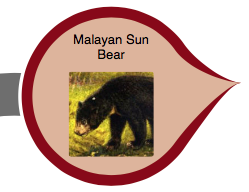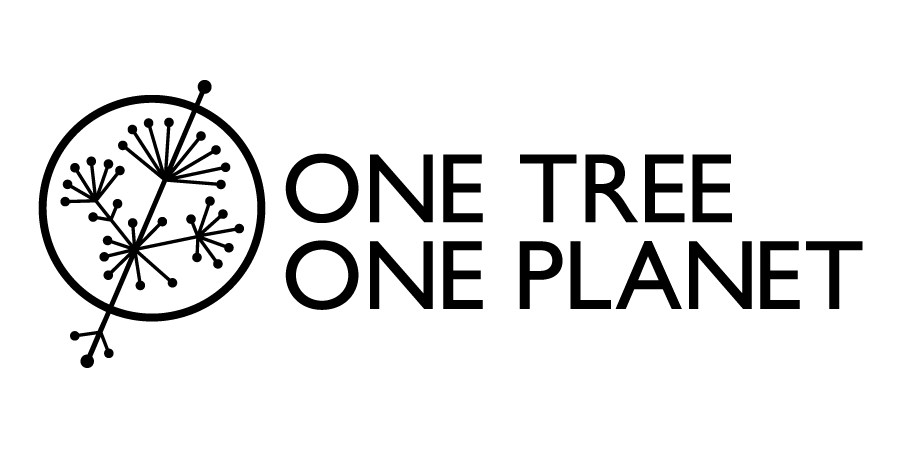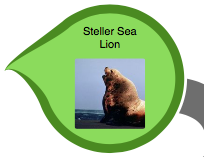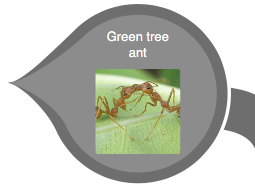Our Mission
Our mission is to advance the education of the public in the subjects of evolution, biodiversity and conservation of the variety of life on earth. We are a not for profit organisation registered in the UK.
Our Software
OneZoom version 4.1-142-gb143c66e
The OneZoom software allows you to explore the tree of life in a completely new way that is similar to viewing a geographical map. This is done using techniques from a branch of mathematics known as fractal geometry, which enable us to condense the entire tree of life into a single page. OneZoom is so named because all the information is on one page, all you have to do is zoom to reveal further details.

We hope you have fun exploring the OneZoom tree of life. We've certainly had fun developing it, even after many thousands of hours working with OneZoom, we are still frequently astonished at what it reveals about the world around us. Most of our source code is publicly viewable enabling interested developers and scientists to contribute improvements if they wish.
OneZoom Organisation
OneZoom is a charitable incorporated organisation (non-profit) registered under number 1163559 in the UK. We aim to provide easy access to scientific knowledge about biodiversity and evolution, and raise awareness about the variety of life on earth together with the need to conserve it. In pursuit of these aims, our current focus is on developing this visualization of the tree of life. Our registered address is OneZoom, Office 7, 35-37 Ludgate Hill, London, EC4M 7JN, UK.The OneZoom project has a long history of development dating back to the first version of OneZoom that was conceived in 2011 and released under an open source license in 2012. The OneZoom codebase is now improved and maintained by the OneZoom charitable organisation since the charity's formation in 2015.
Our collaborators

OneZoom is delighted to be in collaboration with the Linnean Society of London since 2017.

OneZoom is delighted to be a partner of the One Tree, One Planet project since 2017.
Equality, diversity and accessibility
OneZoom is committed to the principles of equality and diversity. We will not discriminate on the basis of age, disability, gender, gender reassignment, race, religion or sexual orientation. Our educational materials are open to everyone and we are taking steps to increase their accessibility as much as is practical for a project of our size. Recent steps include a colour blind friendly mode for our main tree of life explorer and addition of an 'Mx' title on our sponsorship page for individuals with non-binary gender identity. We welcome all feedback on how we can make our work more accessible.
Funding and sponsorship

We thank On the Edge for funding the introduction of our tree tours feature with a grant of £25,000 made in 2022.
We thank everyone who supported us by sponsoring leaves on our tree of life, this source of income has enabled us to build and maintain the website you see today.
We are especially grateful to Prof. Richard Dawkins and Prof. Jonathan Drori who have been most generous with their donations for sponsorship.
OneZoom still needs funding, our unique and important work falls between the cracks of mainstream funding opportuinities.
You can support us through sponoring a leaf, choose a leaf by clicking on it in the tree of life explorer, or through the sponsorship page on our website.
We are also hoping to attract the interest of private foundations and other organisations whose goals align with ours please contact us, if you are aware of any opportuinities that could support OneZoom.How to cite OneZoom
If you've used OneZoom in teaching or research and you want to cite the project please use
OneZoom Core Team (2026). OneZoom Tree of Life Explorer Version 4.1-142-gb143c66e URL: http://www.onezoom.org
We also appreciate citations of our scientific publications about OneZoom development
- Yan Wong and James Rosindell (2021) Dynamic visualisation of million-tip trees: the OneZoom project. Methods in Ecology and Evolution 00: 1–11. doi: 10.1111/2041-210X.13766
- James Rosindell and Yan Wong (2018) Biodiversity, the Tree of Life, and Science Communication in Phylogenetic Diversity eds. Rosa A. Scherson and Daniel P Faith
- James Rosindell and Luke Harmon (2012) OneZoom: A Fractal Explorer for the Tree of Life. PLoS Biology 10: e1001406. doi: 10.1371/journal.pbio.1001406
Other references
The data used to construct the main tree on this site is from a hand-crafted mix of sources, but relies heavily on the Open Tree of Life project, to whom we are extremely grateful.
Images of species on the tree have been harvested from the internet by the Encyclopedia of Life project (EoL). We must thank EoL for their fantastic resource, and helpful responses to our various requests. For further information on any image, zoom into the copyright symbol next to the picture, the symbol may also serve as a link to the source of the image.
In the current version, red leaves of the tree correspond to species that are threatened with extinction according to the IUCN Red List of threatened species.
The fractal layout for our ‘polytomy’ tree view, also used by the One Tree One Planet Project, is similar to and draws some inspiration from Lifemap: Exploring the Entire Tree of Life PLoS Biol 14(12): e2001624 (2016) by Damien M de Vienne.
People and credits
Please see our Team page team page for a full list of current and past OneZoom team members

We thank Jamie Lentin for his huge input into the OneZoom codebase and especially for development of version 3.3 to support the One Tree One Planet Project.
We thank Kai Zhong for his huge input into the OneZoom codebase and especially for code refactoring and the addition of dynamic caching to enable the complete tree of life to be displayed.
We thank the entire One Tree One Planet project team for their support in developing OneZoom further to make it suitable to use as part of One Tree One Planet: Naziha Mestaoui, Douglas Soltis, Pamela Soltis, Robert Guralnick and Matt Gitzendanner
We thank the Linnean Society of London for their support as a collaborator, for hosting OneZoom at numerous events, and for promoting the Linnean Society Tree on OneZoom.
We thank Jonathan Sutton for his significant contribution to the OneZoom codebase during his 2016 summer placement.
We thank Hélène Morlon for her support in promoting and developing the OneZoom project since she joined the team in 2016.
We thank Jonathan Drori for his advice and support in running the OneZoom charitable organisation.
We thank Prof. Richard Dawkins and Prof. Alice Roberts for their kind ongoing promotion of OneZoom at events and on social media.

We thank Prof. Duncan Gillies who assisted James in the supervision and recruitment of Kai Zhong.
We would also like to thank the following people (in alphabetical order) for providing a wide range of help and advice at various stages in the OneZoom project history: Austin Burt, Joseph Brown, Noah Constant, Stephen Cornell, Joel Cracraft, Mick Crawley, Jonathan Eastman, Rampal Etienne, Robert Ewers, Rich FitzJohn, James Foster, Matt Gitzendanner, Mark Hammond, Lisa Harmon, Michelle Harrison, Klaas Hartmann, Jacob Hepworth-Bell, David Hillis, Nick Isaac, Sean Jordan, Walter Jetz, Jeff Joy, James Keirstead, Mike Kiparsky, Bill Kunin, Simon Levey, Curtis Lisle, Georgina Mace, Catriona MacCallum, Lynsey McInnes, Arne Mooers, Jack Nijjar, Laura Nunes, David Orme, Guillermo Orti, Ian Owens, Rod Page, Matishalin Patel, William Pearse, Matt Pennell, Albert Phillimore, Jacqueline Phillimore, Andy Purvis, Alex Pyron, Donald Quicke, Erica Bree Rosenblum, Jill Rosindell, Owen Rosindell, Martin Sayers, Nilay Shah, Graham Slater, Doug Soltis, Matthew Speight, David Tank, Gavin Thomas, Nina Thornhill, Oliver Worsfold, Amy Zanne
All versions of the OneZoom software from 2.0 upwards were developed jointly by Dr. James Rosindell, who primarily worked on visualisation and Dr. Yan Wong, who primarily worked on synthesising the tree data. Yan is a coauthor with Professor Richard Dawkins on The Ancestor’s Tale: a history of life, which has made extensive use of the OneZoom visualisations. The research done for the book has in turn contributed to the dataset used by the OneZoom software.
James originally devised the OneZoom concept in 2011, he initially worked on the project only during his spare time, taking advice from Luke Harmon in particular. After that, James further developed OneZoom as part of his research program at Imperial College London, which was funded by a research fellowship from the (NERC). The first version 1.0 of the software and an associated academic paper authored by James and Luke was published in 2012. All ongoing OneZoom activities have been managed by the independent OneZoom charity since its formation in 2015.